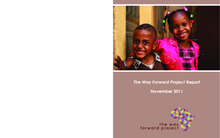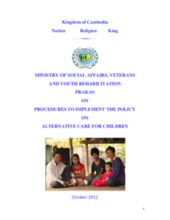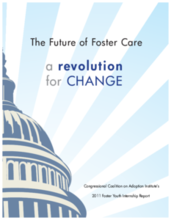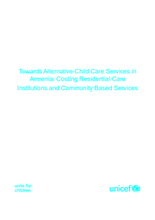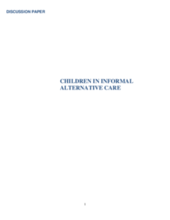Displaying 2021 - 2030 of 2221
Few local authorities had elaborated programmes or routines for care leaving. Many small municipalities had few young people in care, which made it difficult to organise elaborated programmes for care leaving. Manager’s expected a rapid and linear transition to adulthood. Little awareness of the yo-yo transition pattern common for other young people. Managers were worried that continued contact with social services would lead to young people being dependant on support. Only 6% of managers had any information of young people’s whereabouts, once they had left care.
The authors of this article carried out a follow-up study of 143 young adults leaving kinship care. They assessed the young adults’ transition to adulthood with interviews and questionnaires. A small part of the sample presented serious problems of social exclusion. Seventy percent had found employment or were in higher education. The youth had frequently suffered the loss of foster carers and lack of support.
The Congressional Coalition on Adoption Institute’s The Way Forward Project brought together a group of international experts to discuss opportunities and challenges facing governmental and non-governmental organization leaders in six African nations (Ethiopia, Ghana, Kenya, Malawi, Rwanda, and Uganda) as they work to develop systems of care that serve children in and through their families.
This paper explores malnutrition among children in foster care in the U.S. and programs and interventions that help to improve the nutritional health of children in foster care.
This Prakas is intended to define roles and responsibilities of relevant competent agencies and establish procedures, operational guides, and forms to implement the Policy on Alternative Care for Children.
Released by a group of former United States foster youth as a comprehensive report on the system in which they were raised, this report details the Congressional Coalition on Adoption Institute’s (CCAI) Foster Youth Internship (FYI) recommendations on improving hot-button issues ranging from immigration, education, mentoring, psychotropic drugs, child abuse and government accountability
This recent study by UNICEF in Armenia costed different types of residential care and community based services.
The overall objective of the assignment is to support the knowledge management platforms of BCN, including the expansion and maintenance of BCN’s online resource library and portals, preparation of its newsletter, and development of a new discussion forum.
The paper examines elements that must be in place to ensure that foster care is effective, including legislative frameworks and a trained child welfare workforce. It consider principles for good practice in foster care, with a particular focus on examining how such principles can be applied in resource constrained settings.
This paper, 'Children in Informal Care', was produced in response to a knowledge gap on informal care and to help determine the relevance and applicability of the 2009 Guidelines for the Alternative Care of Children to informal alternative care. The authors asked the questions “what constitutes ‘informal care’?”, “what forms of informal care are there?”, “who needs informal care?”, and “can they be clearly defined?”

